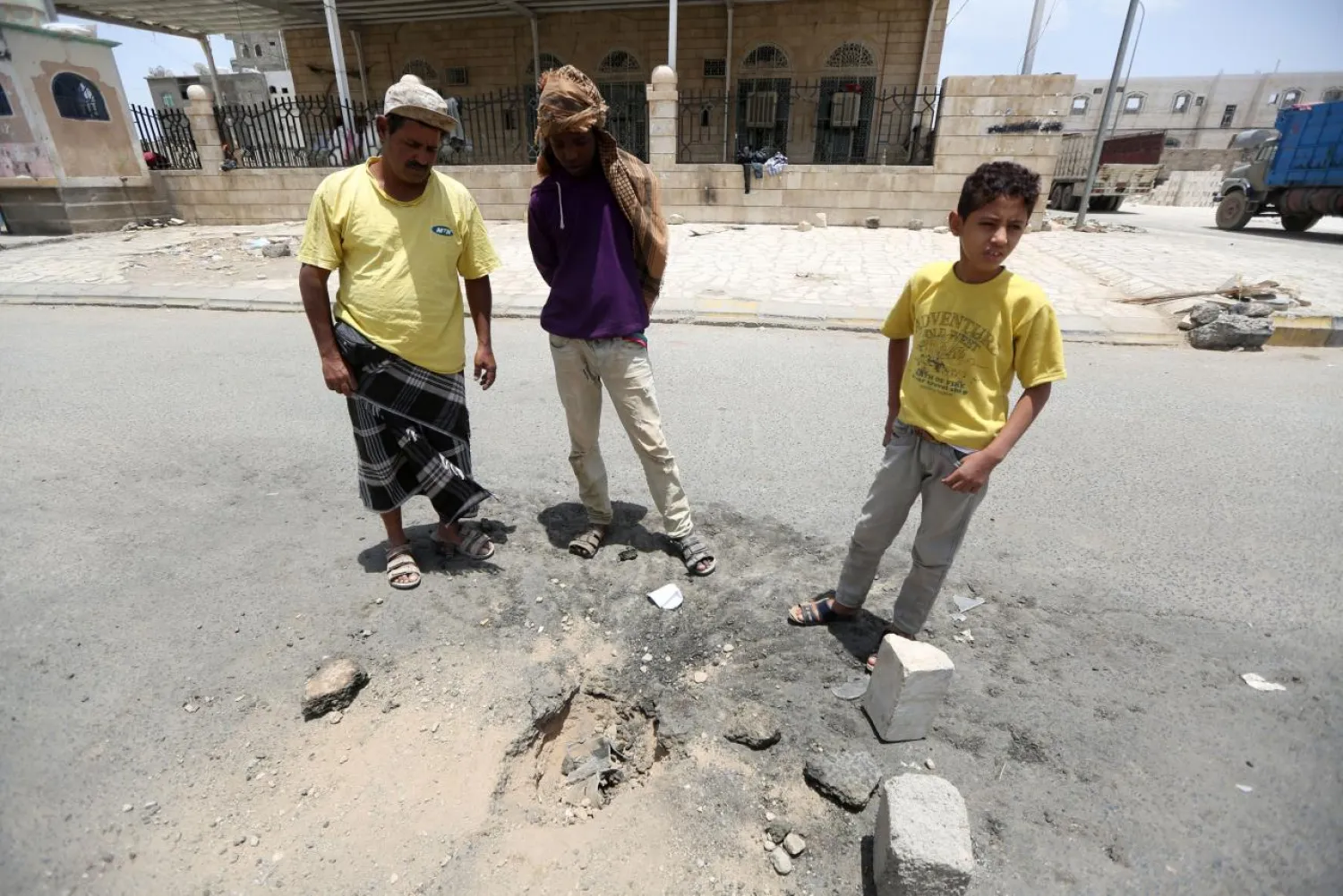At least five civilians were killed and 22 injured when Houthi militias launched a Katyusha rocket at a popular market in the city of Marib east of the Yemeni capital Sanaa.
Information Minister Muammar al-Iryani strongly condemned the attack, saying it would not go unpunished, while the Ministry of Human Rights denounced the crime and said that no statutes of limitations will be applied.
Speaking to Asharq Al-Awsat, military observers speculated that the Iran-backed Houthi militias are despaired of firing ballistic missiles at Marib, because they are being intercepted by legitimacy air defenses. This prompted them to launch Katyusha rockets that can not be downed by the defenses.
During the last three years, the militias fired dozens of ballistic missiles towards the city, but the Arab coalition defense system was able to intercept and destroy them.
Official medical sources said the Houthi attack, which targeted a popular market packed with shoppers in central Marib, left three people in critical condition.
Ambulances and rescue teams rushed to the scene and transferred victims to nearby hospitals and medical centers, while critical cases were transferred to the main hospital in the city, according to the sources.
Iryani described the attack as a "heinous crime" against innocent civilians, saying it reveals the state of confusion the Houthis are going through after their successive defeats on various battlefronts.
"The attack will not go unpunished, and those responsible for it and all the crimes committed by the militias against the citizens will be held accountable in the near future," he vowed.
He called on the international community to condemn "the continuous Houthi crimes against the Yemeni people.”
The Yemeni Ministry of Human Rights also issued a statement strongly condemning the attack and said that firing rockets at civilians and populated areas is a crime against humanity and a flagrant violation of international laws and norms, including Security Council Resolution 2216.
Marib deputy governor Abed Rabbo Meftah visited the victims at hospital, strongly denouncing the Houthis' systematic targeting of civilians in the city.
These criminal acts reveal that the Iranian coup militias are trying to take revenge against civilians due to their defeats on the field, especially given that the national army is closing in on their main stronghold in Saada, added the minister.









